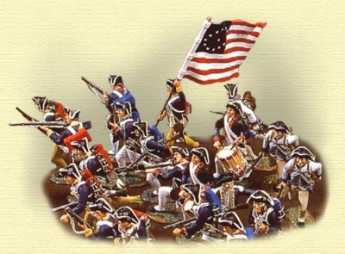Related Topics
No topics are associated with this blog
Who Won the American Revolution?

|
| American Revolution |
People have certainly tried to find fault with one thing or another to criticize about George Washington, Ben Franklin, and Robert Morris. They were certainly no angels, and they made mistakes. But these three men, far ahead of any others, were responsible for winning the Revolutionary War; it is pretty hard to conjecture how it could have been won without all of them.
Washington invented a style of warfare, modern weaponry, and organization grafted on to what was basically Indian guerilla war.
Ben Franklin invented many things and was clearly a genius. But his performance as the greatest natural diplomat of the Enlightenment was extraordinary. Franklin took the arts and wiles of diplomacy, an old-world sophistication of enormous complexity, and using his second-grade education eclipsed the acknowledged masters of the trade.
And Robert Morris was not merely a financial genius, because that merely implies a certain amount of academic skill, but invented modern finance for the benefit of his nation, made them rich against their will, and pushed the Industrial Revolution miles further down the road. Even when you know the details of all he did, the fact that he did it all, is astonishing. And we cannot overlook the fact that he made himself the richest man on the continent while he was doing the same for his country.
One other trait is common to these three who won the Revolution: they were deeply uncertain that it was a good thing to do. Morris refused to sign the Declaration of Independence for three months after July 4, 1776. Franklin spent most of his political life trying to unify the British and American empires. And Washington never did make a clear statement, during twenty years of striving to rescue a new nation, just what he didn't like about being a colony of Great Britain. Just imagine what Winston Churchill would have done with that material, and if readily becomes clear that all three saviors of the nation harbored many moments of doubt.
Originally published: Thursday, July 07, 2011; most-recently modified: Wednesday, June 05, 2019